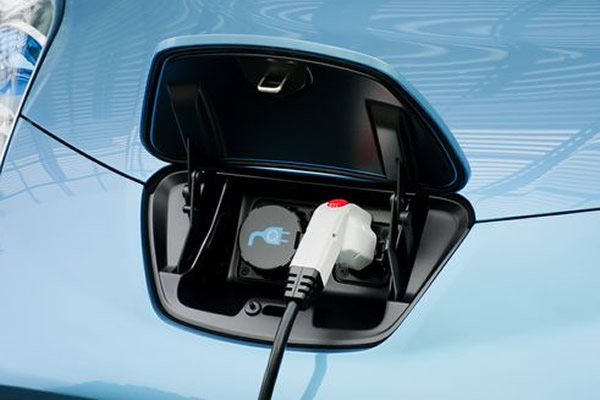<p style="text-align: justify">So you&#8217;re on the car lot with two choices in front of you. Good old-fashioned gas powered internal combustion, waiting for you to put the pedal to the metal. The other an environmentally friendly battery powered car with an, &#8220;I&#8217;m green&#8221; vibe singing from the paint job. So what do you choose? Let&#8217;s look at some of the pros and cons of these modern marvels.</p>
<h2 style="text-align: justify"><strong>Up-Front Costs</strong></h2>
<p style="text-align: justify">First, let&#8217;s look at some cost values between the electric and gas powered vehicles. Keep in mind these facts are generally based on consumer reports with an average usage equal to realistic lifestyles of everyday drivers. When first glancing at the sticker price, the electric car usually cost more in the MSRP box. An exception is found in high-end luxury cars such as Mercedes, however, for the sake of argument we can compare the Ford Focus (gas) and its counterpart (electric); the electric being around ten to fifteen thousand more dollars MSRP.</p>
<p style="text-align: justify">You might argue the electric car will make up the difference in fuel costs, and you&#8217;d be half right. The difference in yearly fuel consumption (based on 15,000 miles a year at $3.65 a gallon for gas and an equivalent ratio of range/charging costs for electric) is around $1,200.00, the electric being cheaper. Okay, so maybe you&#8217;re not quite half right. So far, in comparing initial cost and fuel charges the gas powered car is still cheaper.</p>
<h2 style="text-align: justify"><strong>Costs of Maintenance</strong></h2>
<p style="text-align: justify">Next, we must consider the cost of maintaining a working vehicle. When it comes to gas powered cars and worst case scenarios; such as replacing an entire engine/powertrain, the gas car wins again. While the cost of a new engine can range from $3,000-$6,000&#8230;the fact is electric battery production is still just, &#8220;out of the womb&#8221; and cost of making new fuel cells are costly, like $15,000 costly. Let alone find someone mechanically qualified to work on busted electric batteries/powertrains.</p>
<h2 style="text-align: justify"><strong>Performance Values/Plug Stations?</strong></h2>
<p style="text-align: justify">One major fact to consider is where are all the plug stations? With the average range of any electric vehicle to be no more than 150 miles you&#8217;ll find yourself planning routes in accordance with your electric needs. While most electric automakers inform us that 30 minutes on a 220 volt outlet will charge your ride to full capacity; and a regular outlet will work just fine but take longer, one must look hard to find these power stations. Kind of a hassle to deal with in our &#8220;on the go&#8221; lifestyles when gas is practically everywhere. For local drivers who only commute less than 120 miles per day who can charge their cars overnight, this problem doesn&#8217;t affect them. For distant travelers or &#8220;road warriors&#8221;, however, this is a pretty big deal.</p>
<h2 style="text-align: justify"><strong>Future Tech</strong></h2>
<p style="text-align: justify">Now how about some good news for electric cars, eh? For starters, electric car markets have the advantage of being a fast growing technology, one in which consumers will take supreme advantage of in the coming years. With the need of finding new and renewable sources of energy for our economy the electric car market will soon merge with other energy sources such as wind, solar, and perhaps even water for the coastal cities. Gas, petroleum, and oil markets find it harder each day to supply the demand of the world&#8217;s needs in combustible fuels. Millions are being spent on finding the last supplies of oil and natural gas in the Earth&#8217;s crust, as well as how to obtain it. Eventually, fossil fuels will run dry and an alternative source of energy will be required to fuel our daily lives and commute. The electric car market shines here like a diamond, offering less pollution, less damage to habitats, and increases jobs in the engineering sectors looking for state of the art concepts in &#8220;green living&#8221;.</p>
<h2 style="text-align: justify"><strong>Final Thoughts</strong></h2>
<p style="text-align: justify">Looking at the now, gas cars are generally cheaper to live with and more travel efficient. Not to mention your average driver can operate and fix his/her own car with more confidence than pursuing knowledge on electric motor malfunctions. Looking into the future, the electric car seems to be the better pick. As we familiarize ourselves more and more with electric cars and its growing technology, eventually the cost to own and operate one will even out.</p>
<p style="text-align: justify">The planet will also benefit from electric motors with less pollution and a higher recycle rate of the battery parts. Merging alternative energy sources will increase range of electric vehicles, decrease charge times, and not drain your bank account. I wouldn&#8217;t be surprised if by the year 2050 most cars on the road are electric or alt-energy hybrids. I hope by 2150, we won&#8217;t need any roads&#8230;and Earth stands stronger than ever.</p>
<p style="text-align: justify"><strong>Sources: Motor Trend</strong></p>
<p style="text-align: justify">This article was contributed by Nathan Quinlin from LinearAutomotive.com. Nathan is an avid car enthusiast who spends most of his spare time with his family.</p>

Electric Cars Vs. Gas Cars
